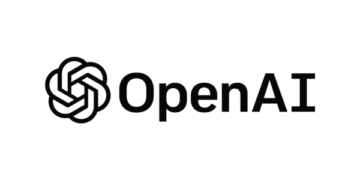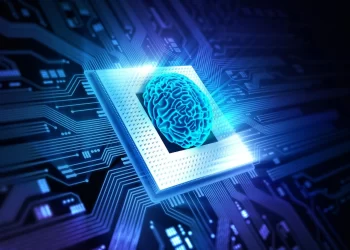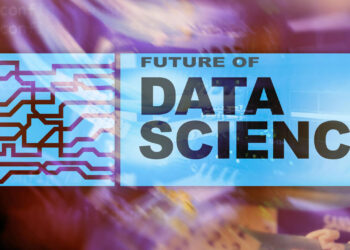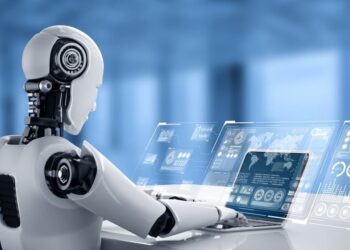The technology of Artificial Intelligence has demonstrated to be bliss for many enterprises and has assisted in unraveling core issues associated with challenges faced. In healthcare also, artifical intelligence has been profitable, particularly concerning diagnostics.
According to research published in the Future Healthcare Journal, Artificial Intelligence will increasingly be employed in the healthcare track, notably for obligations such as treatment recommendations and diagnosis, patient adherence and engagement, and organizational operations of the healthcare workforce. ]However, the main challenge AI faces is convincing healthcare practitioners, and to do so, clinical data must be available and accessible to the AI system. Therefore there is a need for easy data sharing using blockchain technology.
AI in Diagnosis
One example of the use of AI in diagnostics is Mindshare’s symptom checker, which has been designed to allow patients to input their symptoms into an app, which uses an algorithm to diagnose whether they might have cancer (or other diseases).
At present, the technology is not at a stage where it can be used as a replacement for human doctors but rather as a tool for triaging patients more effectively.
One of the most significant benefits of AI is that it can be used to aid existing human doctors with diagnostics.
For example, an AI algorithm can be trained on thousands or even millions of previous patient examples to identify and diagnose patterns and aid a human doctor through the process.
As well as saving time, such algorithms are also more likely to be accurate than a human doctor without such training.
Also read: Indian Startups Using Artificial Intelligence in Healthcare
AI Treatment Recommendations
The potential of AI for treatment recommendations is far greater than that for diagnosis. The most significant benefit of recommendation engines in medicine would be to aid human decision-makers by providing them with lists of options that take into account the current situation and medical history based on models created by data science teams.
Such recommendations could include the best course of action for a particular patient based on their history and medical data.
As well as being practical, it also saves time by providing doctors with more information to make crucial decisions in an instant. For instance, an AI recommendation engine can be used to provide doctors with recommendations for treatment plans or even treatments that have already been tried and proven successful in the past.
As well as this can use such technology to come up with new treatment options since it can take into account a patient’s medical history to suggest new treatments and drugs, again saving time.
AI Patient Engagement Programs
AI algorithms can provide much quicker treatment plans which are informed by scientific findings. Such technology helps doctors to engage patients and educate them on the best possible course of action. It will, in turn, improve the doctor-patient relationship and enhance the patient experience since they will understand their diagnosis more clearly.
However, these treatments are often too complicated for patients to understand, and the outcomes of the algorithms are not explained. It means that no patient engagement program is needed when working with AI technology.
However, this looks set to change in the future as there has been increased interest in using AI technologies by healthcare providers. Health care providers have been experimenting with ways to develop healthy relationships with their patients.
Yet, many still feel that they don’t properly understand what makes them unique or how best to engage them. This paper aims to explore how health care organizations can embrace new opportunities afforded by AI technologies while also ensuring a positive patient experience during treatment planning periods.
Also read: Artificial Intelligence – A Boon for Covid-19 Vaccine
Company Using AI in Medical Sciences
Below is a table listing just a handful of the hundreds of companies involved in research into artificially intelligent systems and their application in the healthcare sector. The applications of artificially intelligent systems in healthcare can also be divided into three broad categories (for companies in Table 1, the type and model of AI systems are also noted).
Table 1
Some major companies around the world using artificial intelligence in medical sciences.
| Company | Purpose | Website |
|---|---|---|
| AiCure (New York City) Patient-oriented | Uses video, audio, and behavioral data to better understand the connection between patients, disease and treatment. | https://aicure.com |
| Aidence (Amsterdam, The Netherlands) Clinician-oriented | AI for radiologists: improving diagnostics for the treatment of lung cancer | https://www.aidence.com |
| Aiva Health (Los Angeles) Administrative and Operational-oriented | The first voice-powered care assistant: connects patients with the correct physician for communication. | https://aivahealth.com |
| Babylon Health (London) Administrative and Operational-oriented | Uses NLP and AI to create internationally accessible and affordable health system for all. | https://www.babylonhealth.com |
| Bot MD (Singapore) Clinician-oriented | Bot assistant: answers clinical questions, transcribes dictated case notes and automatically organizes images and files. | https://www.botmd.io/en/ |
| Suki (San Francisco) Clinician-oriented | Voice enabled digital assistant for physicians | https://www.suki.ai |
| Insitro (San Francisco) Patient-oriented | Uses advanced machine learning with computational genomics to reduce the time and cost associated with drug discovery for patients. | http://insitro.com/ |
AI Administrative Operations
We can use AI systems to streamline office operations, such as medical records management, billing, claims to process, and other tasks are requiring vast amounts of time and data inputting.
Since AI technology is already used widely in the administrative sector, it can be applied to medicine effectively without requiring much time or effort from healthcare professionals.













